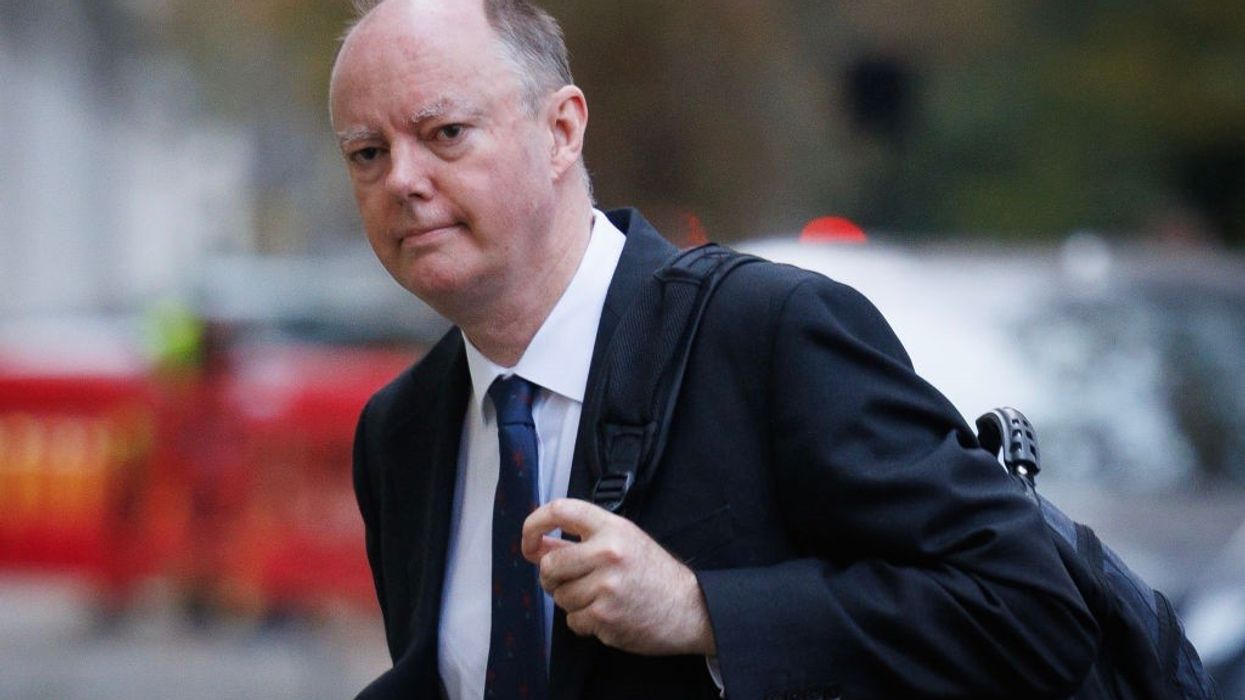England's chief medical officer, professor Sir Chris Whitty, shared with the Covid inquiry that the initial lockdown in March 2020 was enforced "a bit too late," acknowledging the government faced limited options during that period.
He highlighted public health concerns such as loneliness, depression, and the risk of exacerbating poverty, indicating the importance of caution in decision-making.
He emphasised the delicate balance between acting too early or too late in response to the rising threat.
Reflecting on hindsight, Whitty admitted he would have implemented certain measures differently as the virus began spreading in early March.
He cited the necessity of earlier bans on mass gatherings, including football matches, and the introduction of travel quarantines from China, the BBC reported.
This admission followed former chief scientific adviser Sir Patrick Vallance's remarks, indicating occasional differences in their perspectives.
However, both stressed the constructive nature of debates.
Additionally, Whitty emphasised his responsibility for considering the indirect consequences of imposing restrictions on the population, underscoring that the disparities between their viewpoints were actually “extremely small.”
Whitty acknowledged that, in hindsight, the first lockdown in March 2020 was implemented "a bit too late."
He explained that, at the time, he leaned towards considering the potential drawbacks before taking action, ensuring that ministers were aware of both sides of the equation.
Whitty emphasised the need to balance the risks of acting too early, resulting in significant societal and economic damage with minimal impact on the epidemic, and acting too late, allowing the pandemic to escalate.
He highlighted the dual challenges of addressing the epidemic's impact on areas of deprivation and vulnerable populations while being cautious about potential negative consequences of restrictions, such as loneliness and mental health issues.
Additionally, Whitty mentioned that even during the peak of the pandemic, more people died from non-Covid causes than from Covid itself.
"Every one of those deaths is tragic on both of those sides," he said.
Whitty defended the decision not to raise an alarm across the government in mid-January 2020, despite Sir Jonathan Van-Tam, his deputy at the time, expressing concerns about an imminent pandemic.
In statements read to the inquiry, Van-Tam highlighted his worries about human-to-human transmission and the potential for a significant pandemic as early as January 16, 2020.
Explaining the situation, Whitty mentioned that Van-Tam’s concerns were based on instinct rather than concrete data, which would have been insufficient grounds for significant decisions.
"If you consistently go to all of government and say, 'I have no data on this, and I'm a bit worried, but my gut feeling is this is going bad', you don't get very much traction," Whitty told the inquiry.
Whitty also indicated that the government's assertions of "following the science" became a burden for their decision-making process.
He clarified that his role and that of his colleagues was not to dictate specific actions to ministers regarding matters like the timing of lockdowns. Rather, they aimed to apprise ministers of the potential consequences of their decisions.
Highlighting the complexity of decision-making, he noted that elected officials had to balance numerous factors, acknowledging that there were no straightforward choices.
When asked about Boris Johnson's decision-making approach, Whitty described the former prime minister's method as distinctive.
He observed that Johnson tended to concentrate within smaller groups and shaped decisions through informal discussions, citing his own interactions with Johnson before televised press conferences as an example.
This method, Whitty said, allowed him to test out ideas privately, which Johnson valued and believed facilitated the decision-making process.
In January 2020, Whitty reflected that the UK hadn't adequately considered the prospect of enforcing mandatory quarantine for all arrivals from China as the first Covid cases emerged in Wuhan.
He suggested that implementing border closures or halting flights might have been seen as politically extreme, but imposing home isolation for travellers, regardless of symptoms, could have been a viable consideration.
The UK delayed the introduction of quarantine measures for travellers from Wuhan until 25 February 2020, much later than other nations.
Genetic testing later revealed that the majority of Covid infections didn't originate from Chinese travellers but from British tourists returning from mainland Europe in mid-February.
Whitty acknowledged that stricter quarantine measures could be an option in future outbreaks, even though such measures would not have substantially altered the situation at that time, he said.
Regarding the decision not to ban mass gatherings in February and early March 2020, he noted the absence of compelling evidence suggesting that doing so would significantly curb the virus's spread.
He pointed out that preventing attendance at sports events might have led people to gather in crowded pubs, undermining the intended effect.
However, he admitted that in hindsight, he would have recommended a different approach due to the message of normalcy it conveyed to the public.




